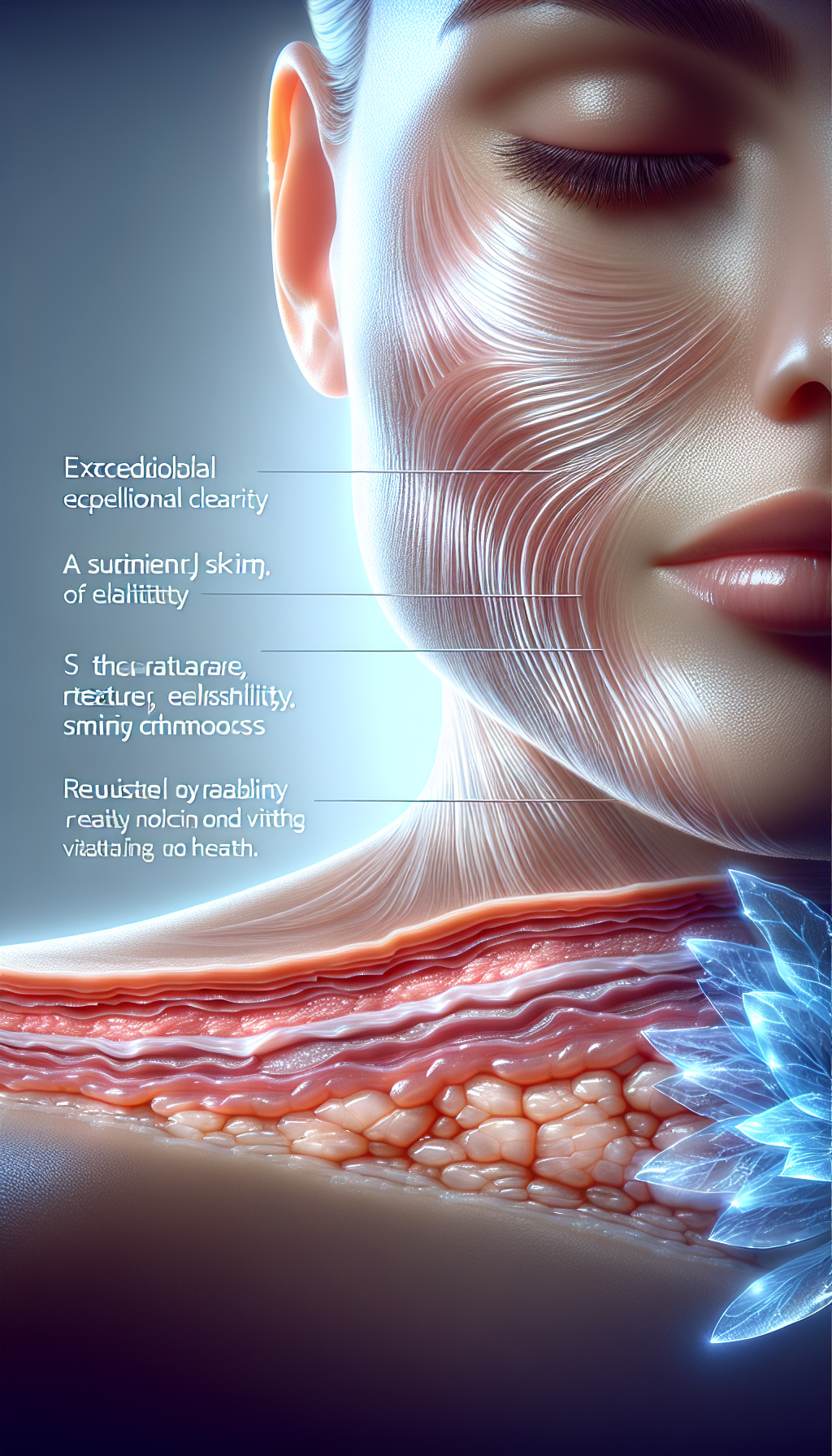In the quest for radiant, youthful skin, understanding the unique needs of your genetic skin type is paramount. The concept of tailoring skin care to an individual’s genetic predisposition is a significant leap forward in dermatology and personal care. This comprehensive guide delves into the science behind genetic skin types and provides actionable insights to help you map out a more effective skin care regimen tailored specifically to your genetic makeup.
The Science of Genetic Skin Types
Genetic skin types are determined by an array of genes that dictate how your skin behaves and reacts to various factors. These genes influence skin characteristics such as hydration levels, elasticity, oil production, and the tendency to develop conditions like acne or eczema. By understanding your genetic skin profile, you can select products and treatments that align with your skin’s inherent tendencies, leading to better outcomes and healthier skin.
Skin Health and Genetics
The skin is the body’s largest organ, and its health is influenced by a complex interplay of genetic and environmental factors. Skin health is not just about appearance; it’s a reflection of your overall well-being. Avixhealth’s comprehensive resource on Skin Health offers a deep dive into the biological and genetic aspects of skin, providing a solid foundation for understanding how to care for it properly.
Assessing Your Genetic Skin Type
To identify your genetic skin type, consider consulting a dermatologist who can conduct a thorough analysis. This may involve reviewing your family’s skin health history and possibly undergoing genetic testing. Such an evaluation can reveal predispositions to specific conditions, sensitivities, and aging patterns, which can then guide the selection of skin care products and treatments.
Personalized Skin Care Strategies
Once you’ve identified your genetic skin type, you can adopt a more personalized skin care routine. This might involve using targeted treatments for issues like acne, hyperpigmentation, or fine lines. Incorporating products with ingredients that are known to work well with your skin type can also make a significant difference in the effectiveness of your skin care routine.
Addressing Specific Concerns
For instance, if your genetic analysis indicates a predisposition to acne, integrating treatments that focus on Addressing Acne Scars Through Skin Care Treatments can be particularly beneficial. These treatments can help manage breakouts and reduce the appearance of scars over time.
Antioxidants and Anti-Aging
For those with a genetic tendency toward premature aging, understanding The Importance of Antioxidant Serums in Anti-Aging Regimens can be a game-changer. Antioxidants help fight free radicals that can damage skin cells, leading to wrinkles and loss of elasticity.
Sun Protection Tailored to Your Needs
Choosing the right sunscreen is critical for all skin types, but especially so for those with a genetic predisposition to skin cancer or photosensitivity. Discover the nuances of selecting an appropriate sunscreen by exploring Choosing the Best Sunscreens for Different Seasons.
The Role of Diet and Lifestyle in Genetic Skin Care
Your skin’s health is also impacted by diet and lifestyle choices. Nutritional habits can enhance or undermine the health of your skin, and certain foods have been shown to support skin health at the genetic level. Learn about Dietary Habits for Enhancing Skin Glow to incorporate beneficial dietary strategies into your routine.
Advanced Skin Care Technologies
Advancements in technology have made it easier to analyze and understand genetic skin types, leading to the development of customized skin care products and treatments. Some companies now offer serums and creams formulated based on an individual’s DNA, providing a level of personalization previously unattainable.
Non-Invasive Screening
Moreover, Advances in Non-Invasive Skin Cancer Screening demonstrate how technology is being used to detect skin cancers early, which is particularly beneficial for those with a genetic predisposition to the disease.
External Resources for Further Learning
To further your understanding of genetic skin types and their care, consider exploring these niche resources:
- The American Academy of Dermatology offers guidelines for genetic testing in dermatology, providing insights into when and how genetic information can be used in skin care.
- Research on the Human Genome Project and its findings on skin-related genes is a treasure trove of information about genetic influences on skin health.
- For a more technical read, investigate scientific publications on the National Center for Biotechnology Information that discuss the genetic determinants of skin diseases and aging.
Conclusion
Tailoring your skin care routine to your genetic skin type is not just about enhancing your appearance—it’s a proactive approach to maintaining the health and integrity of your skin over the long term. By combining personalized skin care strategies with a healthy diet, lifestyle choices, and the latest technological advancements, you can achieve the best possible outcomes for your skin.
Remember that while genetics play a significant role, they are not the sole determinant of skin health. Environmental factors, sun exposure, and personal habits also contribute significantly, so a holistic approach to skin care is always recommended.



